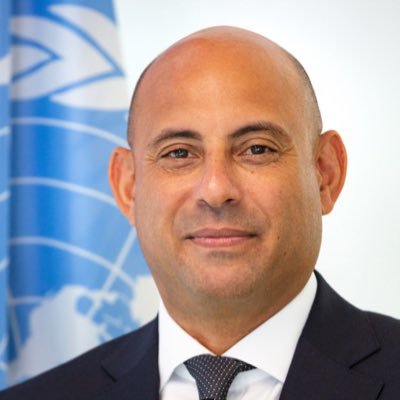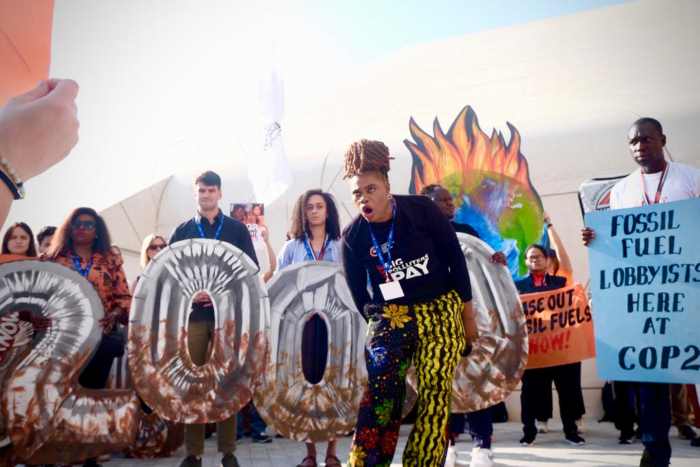The 2024 Nationally Determined Contributions (NDC) Synthesis report has been released.
The report assesses the combined impact of nations’ current national climate plans (NDCs) on expected global emissions in 2030, among other measures.
According to a statement by the UN Climate Change Executive Secretary, Simon Stiell, the report must be a turning point, ending the era of inadequacy and sparking a new age of acceleration, with much bolder new national climate plans from every country due next year.
Stiell described the report’s findings as stark but not surprising. He said the current national climate plans fall miles short of what’s needed to stop global heating from crippling every economy, and wrecking billions of lives and livelihoods across every country.
According to him, by contrast, much bolder new national climate plans can not only avert climate chaos ,done well, they can be transformational for people and prosperity in every nation.
The Executive said that “Bolder new climate plans are vital to drive stronger investment, economic growth and opportunity, more jobs, less pollution, better health and lower costs, more secure and affordable clean energy, among many others benefits.”.
“As expected, with countries currently working to put together new NDCs due next year, this year’s report shows only fractional progress compared to what is expected and urgently needed next year.” He asserted
Stiell said that current plans combined, if fully implemented would see emissions of 51.5 gigatonnes of CO2 equivalent in 2030 – a level only 2.6 per cent lower than in 2019. The Greenhouse gas pollution at these levels will guarantee a human and economic trainwreck for every country, without exception.
The Intergovernmental Panel on Climate Change notes that greenhouse gas emissions need to be cut 43% by 2030, compared to 2019 levels. By 2035, net global greenhouse gas emissions need to be cut by 60% compared to 2019 levels. This is critical to limiting global heating to 1.5°C this century to avert the worst climate impacts. Every fraction of a degree matters, as climate disasters get rapidly worse.
He stated that the next round of national climate plans must deliver a dramatic step up in climate action and ambition.
Admitting that while these plans are not one-size-fits-all, and are nationally determined, he said they all need to pass the ABC test; have ambitious new emissions targets that are economy-wide, covering all greenhouse gases, keeping 1.5 degrees alive, and must be broken down into sectors and gases.
The Executive secretary also said that they must be credible, backed up by substantive regulations, laws, and funding to ensure goals are met and plans implemented.
New NDCs should also detail adaptation priorities and investments to protect critical sectors, infrastructure and people from climate impacts, and support and align with National Adaptation Plan processes. They should have a time horizon to 2035, with much stronger 2030 targets to drive the deep emissions cuts needed globally this decade. He said.
The Role of UN Climate Change
He disclosed that the UN Climate Change is working closely with the wider UN system and providing a range of practical support, particularly for vulnerable and developing countries, recognizing the severe capacity-constraints and other headwinds that many face.
As these new national climate plans will be among the most important policy documents so far this century, therefore UN Climate Change will deliver a series of events next year to support countries delivery of NDCs and engage the global public in the conversation about their delivery.
COP29 as enabling COP
He described COP29 as a vital moment in the world’s climate fight, and the data as a blunt reminder of why COP29 must stand and deliver.
According to Stiell, governments must come to Baku ready to convert the pledges in the UAE Consensus at COP28, tripling renewables, the global goal on adaptation, transitioning away from all fossil fuels, into real-world, real-economy results, protecting people and their livelihoods everywhere.
COP29 must be an enabling COP, delivering concrete and ambitious outcomes on climate finance that take account of developing country needs, recognizing that such support is core business to protect every nation and the global economy from rampaging climate impacts. He said.
He stressed that the last generation of NDCs set the signal for unstoppable change. New NDCs next year must outline a clear path to make it happen, by scaling up renewable energy, strengthening adaptation and accelerating the transition to low-carbon economies everywhere.




